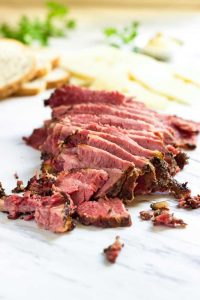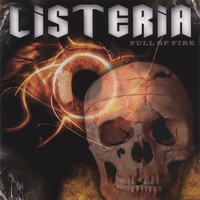South Africa is, according to the UN World Health Organisation (WHO), currently in the middle of the biggest listeria outbreak ever seen.
- It took South Africa more than a year to identify the cause of listeria
- Government blames food firms for the world’s worst outbreak
- Cold meat producers deny direct link with the outbreak
 The country’s Government has blamed producers of cold meat products for delays in tracing the cause.
The country’s Government has blamed producers of cold meat products for delays in tracing the cause.
“This is the largest ever recorded outbreak of this severe form of listeriosis globally,” Peter K. Ben Embarek, who manages the WHO International Food Safety Authorities Network, said.
The Government, which has been criticised for taking too long to find the cause, on Sunday linked the outbreak to a meat product known as “polony” made by Tiger’s Enterprise Food.
It also said it was investigating a plant owned by RCL Foods that makes a similar product, whose shares also slid on Monday before recovering.
Both companies, which say they are cooperating with the authorities, suspended processed meat production at their plants after health authorities ordered a recall of cold meats associated with the outbreak from outlets at home and abroad.
South Africa’s Health Ministry said the source was found after pre-school children fell ill from eating polony products traced to processed meat producers.
“The meat processing industry was not cooperating for months … they did not bring the samples as requested”, the Government’s communications director, Popo Maja,said.
“We had long suspected that listeria can be found in these products.”
“It is not that we are incompetent, or that we have inadequate resources,” Mr Maja said when asked why it had taken more than a year to find the cause of listeria.
He said all companies in the industry were being examined.
South Africa’s processed meat market grew about 8 per cent in 2017 to a retail value of $529 million, according to Euromonitor International.
Tiger Brands has a 35.7 percent market share, followed by Eskort Bacon Co-Operative with 21.8 percent.
Rhodes Food, RCL Foods and Astral Foods each have less than 5 percent.
Tiger Brands, Eskort, RCL Foods, Rhodes and Astral said they had complied with all requests from the health authorities.
Cold meat producers deny direct link with outbreak
Lawrence McDougall, the chief executive of Tiger Brands, said there was no direct link between the deaths and its cold meat products.
“We are unaware of any direct link,” Mr McDougall told a media briefing.
Health Minister Aaron Motsoaledi had said on Sunday the outbreak had been traced to a Tiger Brands factory in the northern city of Polokwane.
The authorities are also examining a second Tiger Brands factory and have not said when they could conclude tests on RCL Foods, which has a plant under investigation.
Rhodes said it produced processed canned meat, different from the cold processed meat made by rivals.
Astral said it produced fresh and frozen chicken, not polonies and items linked to the outbreak.
Both those firms said their products were safe.
Fast food chain owner Famous Brands said it was recalling ready-to-eat meat products from its retail outlets.
The South African Health Minister has told citizens not to consume any ready-to-eat processed meat due to the risk of cross-contamination.
The announcement prompted a frenzied clearing and cleaning of the shelves by local supermarkets chains, which also urged consumers to return the meats for refunds.
Neighbouring states acted swiftly — Zambia banned imports of South African processed meat, dairy products, vegetables and fruit.
Mozambique and Namibia halted imports of the processed meat items and Botswana said it was recalling them.
Malawi stepped up screening of South African food imports.
Dozens of customers lined up outside a Tiger Brands outlet with bags of cold meat products and demanded their money back.
“I lost trust with Enterprise … I’ll be scared even if they say this problem is solved. … [and] would rather go back to peanut butter and jam,” 37-year-old Tshepo Makhura said.
“I hope my grandchildren are going to be OK because we gave them food over the weekend from these parcels,” Deline Smith, a 57-year-old housewife, said.
Analysts said profits at the two firms were unlikely to be hit hard.
Standard Bank analyst Sumil Seeraj estimated the recall would cut operating profit at Tiger Brand’s value added foods division by 6 per cent at most.
The Enterprise unit of Tiger Brands had “a very strong brand in meat”, he said.
“In the short term consumers will switch to other forms of protein.”








